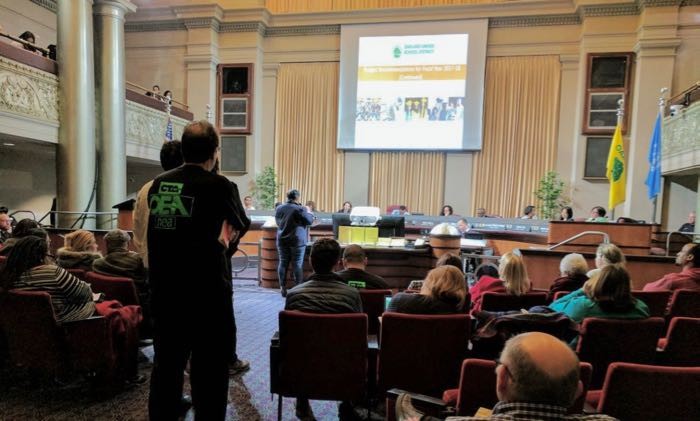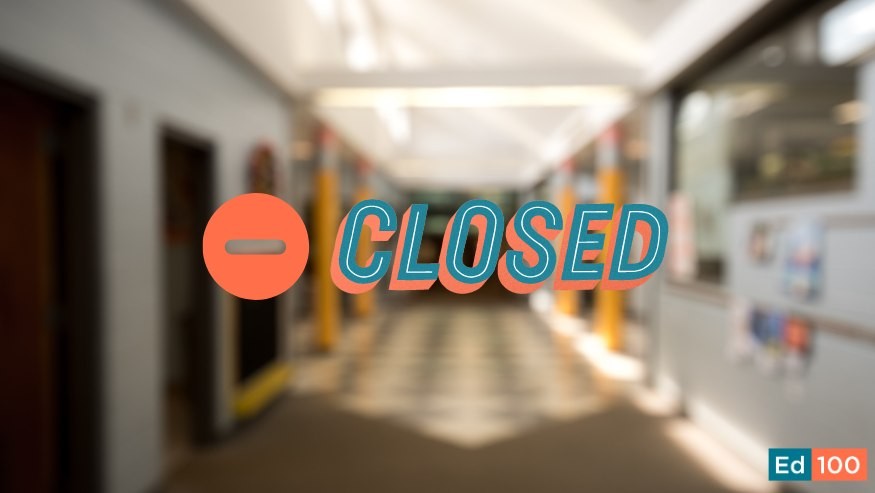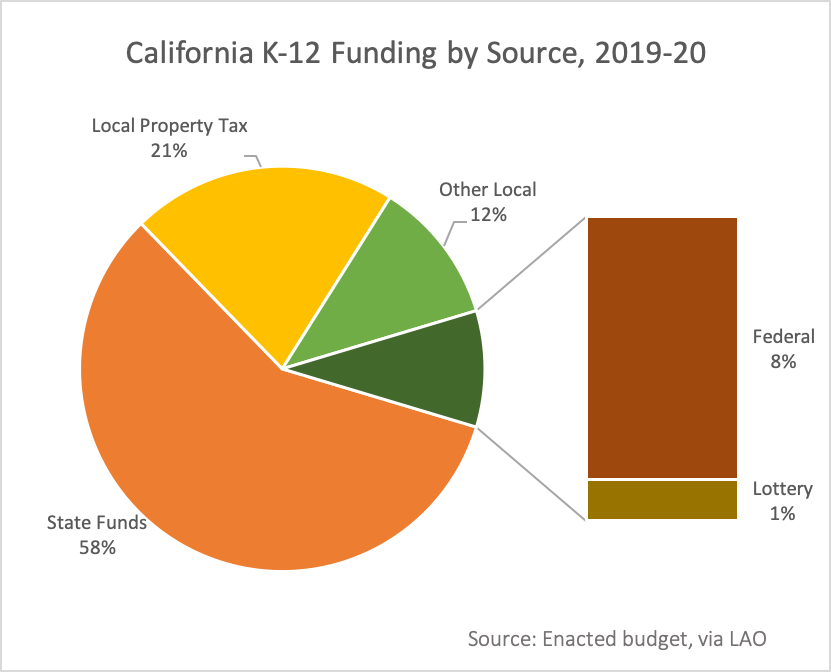A dozen questions to ask school board candidates

Finding the good eggs
Local school board elections used to be sleepy affairs. No more. Political activists now pay close attention to these local contests — for good reasons.
School boards matter. They have the power to set local policies that affect how our children learn to think critically and become responsible adults. And there is more…

In the Ed100 blog:
School Boards Demystified
Public schools are one of the biggest government services in every community. School boards set local policies that relate to constitutional principles such as separation of church and state, freedom of speech, freedom of the press, and equal protection under the law. They are also a training ground for up-and-coming politicians.
What’s at stake?
Recent interest in school board elections partly reflects America's deep political divides. Fueled by controversies over policies about race, coronavirus policy, sex and gender in schools, some political activists see school boards as places to hatch partisan political agendas at a relatively low cost. Vastly different views on the direction of public education may be on the ballot:
- How schools teach about racism.
- Sex education and the rights of LBGTQ students.
- Book bans and restrictions on freedom of speech and assembly.
- Public money for private and religious schools.
How can we tell what candidates think? Ask these questions.
School board candidates are wooing your vote for the November election. They are attending town halls and house parties, showing up at farmers’ markets, and knocking on doors.
What should you ask these candidates?
In this post you’ll find a dozen sample questions that can help you, with links to Ed100 lessons and blog posts to help you shine. Beneath each question you’ll find guidance to evaluate whether candidates answer with substance or flim-flam.
1) Why are you running for school board, and what are your qualifications?
No candidate should ever stumble on this one. It’s the most frequently asked question, and probably will be part of their basic stump speech!
- Does the candidate talk about experience serving on boards that make budget and policy decisions?
- Is the candidate a parent? If so, do the answers reflect more than a personal perspective?
- Does the candidate volunteer in schools or work with students? This can give you important insight on commitment.
- Has the candidate participated in past board meetings? In what way?
- Does the candidate share stories that display a passion for educating children?
- Can you tell whether the candidate is committed to a strong public education system? Is this a stepping stone for higher elective office? (It can be both. It is good to have state and national legislators with a strong understanding of education issues.)
2) What are the top needs of your school district?
The answer to this question will tell you a lot about how prepared the candidate is to serve on the school board.

Ed100 Lesson 7.3
School Districts
- Is the answer tailored to the needs of your school district, or does it reflect a personal political philosophy?
- How did the candidate determine these top needs? From your perspective, are these the most important needs?
- Does the candidate refer to school data and listen to other parents to understand their concerns?
- Does the candidate have any special experience or insight into these issues?
3) What are your budget priorities?
This answer can help you understand whether the candidate understands that a school budget should align with the needs of students.

In the Ed100 Blog:
The School Closure Checklist
- Does the candidate speak frankly about the challenges of closing schools? What is the candidate's view about how to manage declining enrollment?
- Does the candidate refer to the findings and budget recommendations in the district’s three-year plan, known as the Local Control Accountability Plan (LCAP)?
- How does the candidate talk about input from educators, community, and parents?
- Does the candidate talk about priorities, or only about expanding programs?
- How does the candidate talk about ongoing budget obligations such as salaries, pensions, special education costs and local reserves?
If a candidate doesn't discuss financial constraints, or only does so in general terms, it may mean they don’t have a real grip on the realities of funding.
4) How will you address the different needs of all students?
The answer can be an eye-opener.
- How does the candidate talk about the needs of diverse student groups, such as English language learners, children with special education needs, low income students, and those of different ethnicities?
- What does the candidate say about race and gender equity? Does the candidate know any transgender students personally?
- How does the candidate talk about the purpose of school, and how the college and career goals of students may vary?
- What does the candidate say about the needs of students who show high potential?
5) What is your view of school choice?
We’ve included some questions that delve into a candidate’s political philosophy. School choice is one of them.

Ed100 Lesson 5.2
School Choice
- Does the candidate talk about choices within traditional public school districts?
- What does the candidate say about public charter schools?
- Does the candidate favor public funding for private and religious schools?
- Does the candidate favor tax credits or vouchers to pay for private and religious school choice?
6) What are the literacy challenges students face, and how would you address them?
The answer will let you know if the candidate understands California’s reading crisis. Does the candidate:

In the Ed100 blog:
Too many kids can’t read
- Know how well students are performing by grade and demographics?
- Support early screening for all students for risk of dyslexia?
- Talk about providing educators with the most up to date training on how to teach reading?
- Understand the importance of learning to read by third grade?
7) What are your views on math instruction, particularly in middle school and high school?
This will give you a better understanding of how much the candidate knows about student performance and math sequences.

In the Ed100 blog:
Solving California’s math problem
- Can the candidate tell you the percentage of middle school students who are ready for high school math?
- Is the candidate familiar with the math courses that are required for high school graduation and advancement to college?
- What does the candidate say about accelerated classes in middle school?
- Does the candidate have an opinion about the changes in California's state math frameworks?
8) What are your views on how social studies and language arts are taught in our schools?
This will quickly disclose a candidate’s political philosophy. Are hot button issues discussed specifically or avoided with generalities?
- Would the candidate ban or restrict access to books in response to parent objections?
- Does critical race theory come up? Does the candidate know what it is?
- What does the candidate say regarding teaching about civics and civil rights? Does the candidate support freedom of speech and assembly in schools? How about the right to bear arms, or privacy rights?
- What does the candidate think about teaching ethnic studies and civics education?
9) What are your views on educator salaries and benefits?
This question will let you know if the candidate is aware of the life conditions of educators, and how they compare with similarly educated college graduates.
- Does the candidate know how salaries and benefits are structured and negotiated with unions?
- Is the candidate aware of the significance of pensions in educators’ total compensation?
- Does the candidate understand where teacher shortages have been most significant?
- How does the candidate place educator salaries and benefits in the context of the district budget?
- Does the candidate know the base salaries of teachers and paraprofessionals in your district?
10) Can you explain where the money to fund our schools comes from?
This is a softball question for knowledgeable school board candidates.

Ed100 Lesson 8.3:
Who Pays for California’s public schools?
However, it will really open your eyes if the candidate has no idea about what percent comes from local taxes, what percent comes from the state and what percent and kinds of funding comes from the federal government.
- Does the candidate show knowledge of Prop. 98, the state's minimum funding guarantee, or Prop. 13, which limits property taxes?
- Does the candidate mention local parcel taxes or other approaches to raise money?
11) What role should the community play in supporting the education of children?
This question gives a candidate the opportunity to reveal the depth of their commitment to children. It can also reveal a political philosophy.
- Does the candidate talk practically about the role of parents?
- Is the candidate interested in connecting community services with schools (e.g. libraries, sports, art, music, anti-poverty and social services, museums, housing?)
- Does the candidate talk about more than just the school day? Schools have roles to play after school, in the summer, and on weekends and holidays.
- Does the candidate mention coordination with preschools, or the role of the community in ensuring attendance?
12) What will you do to ensure that all children get a full arts education?
The way the candidate answers this question can show whether they view the arts as an essential ingredient of a quality education, or as more of an afterthought.

Ed100 Lesson 6.8:
Arts education: Creating in school
- Does the candidate talk about arts education as a way to make schools effective?
- Does the candidate mention the arts in connection with social-emotional learning?
- Is the candidate aware that arts education is required under California law?
A final note:
Serving on a school board is one of the most important ways to support your community. It is also a difficult elected position. As you ask these questions, remember the lessons we learned in kindergarten: say “thank you”, treat people with respect, listen, don’t yell, apologize if you hurt someone’s feelings, and remember that everyone benefits from a nap.
Updated September, 2024
Tags on this post
Local control Parent Engagement School boardAll Tags
A-G requirements Absences Accountability Accreditation Achievement gap Administrators After school Algebra API Arts Assessment At-risk students Attendance Beacon links Bilingual education Bonds Brain Brown Act Budgets Bullying Burbank Business Career Carol Dweck Categorical funds Catholic schools Certification CHAMP Change Character Education Chart Charter schools Civics Class size CMOs Collective bargaining College Common core Community schools Contest Continuous Improvement Cost of education Counselors Creativity Crossword CSBA CTA Dashboard Data Dialogue District boundaries Districts Diversity Drawing DREAM Act Dyslexia EACH Early childhood Economic growth EdPrezi EdSource EdTech Education foundations Effort Election English learners Equity ESSA Ethnic studies Ethnic studies Evaluation rubric Expanded Learning Facilities Fake News Federal Federal policy Funding Gifted Graduation rates Grit Health Help Wanted History Home schools Homeless students Homework Hours of opportunity Humanities Independence Day Indignation Infrastructure Initiatives International Jargon Khan Academy Kindergarten LCAP LCFF Leaderboard Leadership Learning Litigation Lobbyists Local control Local funding Local governance Lottery Magnet schools Map Math Media Mental Health Mindfulness Mindset Myth Myths NAEP National comparisons NCLB Nutrition Pandemic Parcel taxes Parent Engagement Parent Leader Guide Parents peanut butter Pedagogy Pensions personalized Philanthropy PISA Planning Policy Politics population Poverty Preschool Prezi Private schools Prize Project-based learning Prop 13 Prop 98 Property taxes PTA Purpose of education puzzle Quality Race Rating Schools Reading Recruiting teachers Reform Religious education Religious schools Research Retaining teachers Rigor School board School choice School Climate School Closures Science Serrano vs Priest Sex Ed Site Map Sleep Social-emotional learning Song Special ed Spending SPSA Standards Strike STRS Student motivation Student voice Success Suicide Summer Superintendent Suspensions Talent Teacher pay Teacher shortage Teachers Technology Technology in education Template Test scores Tests Time in school Time on task Trump Undocumented Unions Universal education Vaccination Values Vaping Video Volunteering Volunteers Vote Vouchers Winners Year in ReviewSharing is caring!
Password Reset
Search all lesson and blog content here.
Login with Email
We will send your Login Link to your email
address. Click on the link and you will be
logged into Ed100. No more passwords to
remember!














Questions & Comments
To comment or reply, please sign in .
Yolande Beckles1 October 7, 2024 at 10:25 pm
Carol Kocivar October 8, 2024 at 4:51 pm
Rachel Hurd October 3, 2022 at 10:40 pm
pscripter September 27, 2022 at 12:34 pm
Carol Kocivar September 27, 2022 at 12:43 pm
Jo Loss September 27, 2022 at 3:04 am
These are great questions. Can we add a link to these in our upcoming LWV Voter?
Carol Kocivar September 27, 2022 at 9:31 am